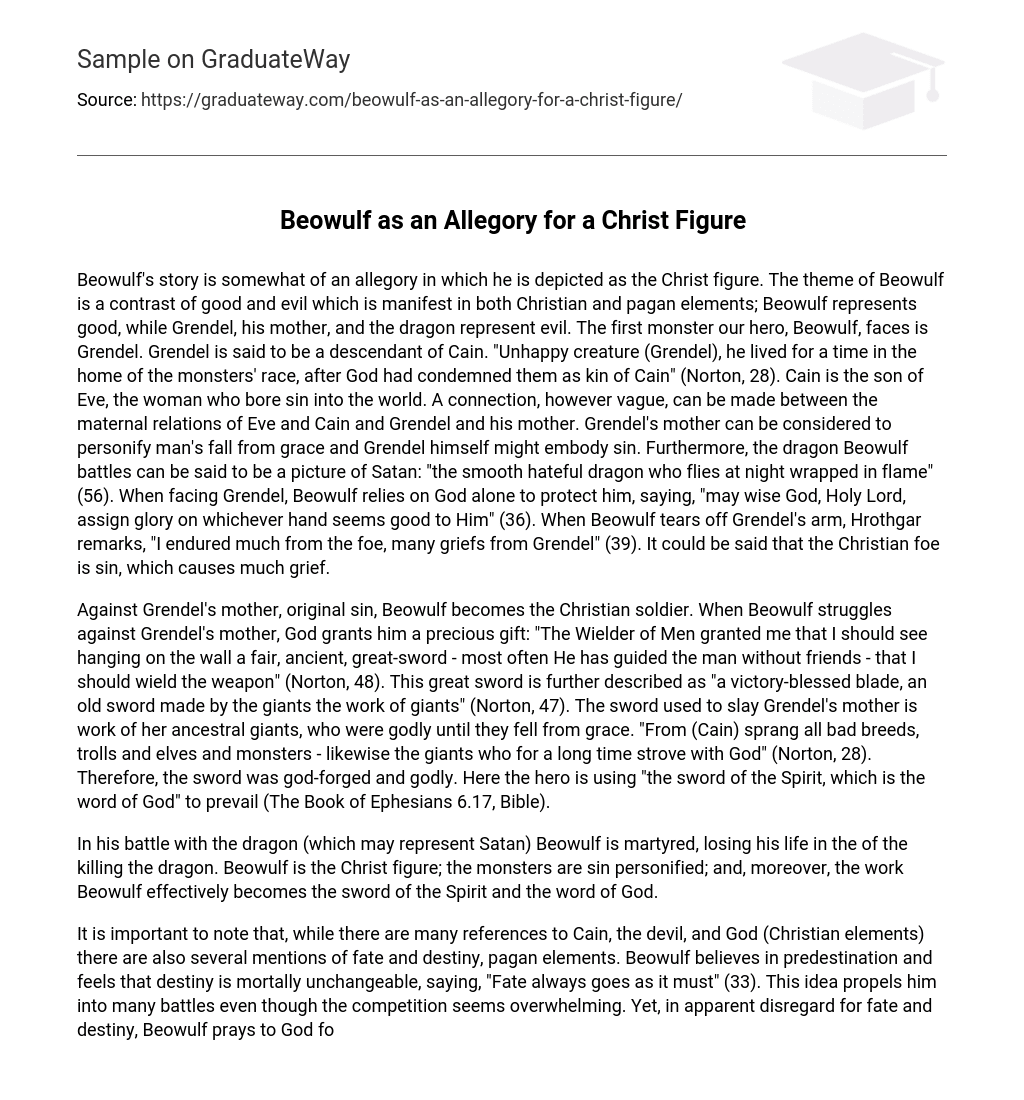The story of Beowulf can be seen as an allegory with Beowulf representing the Christ figure. The main theme is the contrast between good and evil, which is shown through both Christian and pagan elements. Beowulf represents good while Grendel, his mother, and the dragon represent evil. Grendel, the first monster that Beowulf faces, is said to be a descendant of Cain, who was condemned by God for his sins. This connects to Grendel’s maternal relations, suggesting that his mother represents man’s fall from grace and Grendel himself symbolizes sin. Similarly, the dragon that Beowulf battles can be seen as a depiction of Satan. When facing Grendel, Beowulf relies on God for protection. Hrothgar remarks on the grief caused by Grendel, comparing it to the Christian foe of sin.
When Beowulf fights against Grendel’s mother, he takes on the role of a Christian soldier. In this battle, God grants him a valuable gift, allowing him to find a magnificent ancient sword hanging on the wall. This sword has been guided by God many times in the past to aid those in need. The sword is described as victorious and blessed, created by the giants who were once godly beings before their fall from grace. These giants were descendants of Cain, the originator of evil breeds such as trolls, elves, monsters, and others who battled against God. Therefore, the sword used to kill Grendel’s mother is divine in nature. In this situation, Beowulf wields “the sword of the Spirit, which is the word of God” to emerge victorious (The Book of Ephesians 6.17, Bible).
In the conflict with the dragon, possibly symbolizing Satan, Beowulf sacrifices himself, dying while slaying the dragon. Beowulf represents Christ, the monsters personify sin, and additionally, the epic itself becomes the embodiment of the Holy Spirit and the word of God.
It is important to acknowledge that this text contains references to both Christian and pagan elements. While there are numerous mentions of Cain, the devil, and God, indicating Christian beliefs, there are also references to fate and destiny, suggesting pagan influences. Beowulf subscribes to the notion of predestination and believes that destiny cannot be altered, stating, “Fate always goes as it must” (33). Despite this belief, Beowulf seeks aid from God through prayers and expresses gratitude for victory and protection.





